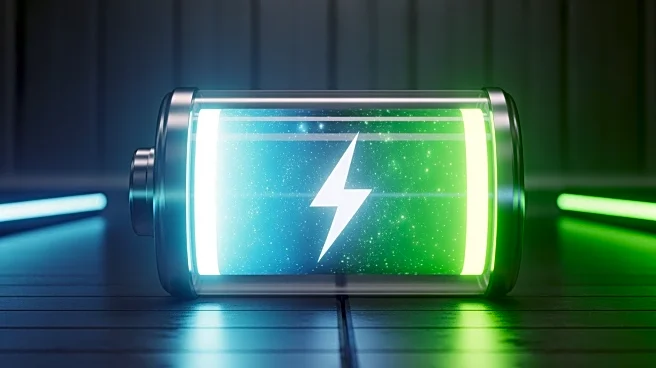What's Happening?
Maxvolt Energy Industries is set to establish a new lithium-ion battery manufacturing and recycling plant in the Duhai Industrial Area, aiming to triple its production capacity to 225,000 units by December 2025. The company has acquired 55,000 sq. ft.
of land for this purpose. The new facility will increase Maxvolt's battery production from 72,000 units to 225,000 units. Additionally, Maxvolt has introduced a battery take-back and repurposing program to reuse old batteries for various applications, including solar streetlights and portable electronics. The initiative is part of a broader strategy to reduce battery waste and promote sustainable manufacturing.
Why It's Important?
The expansion of Maxvolt Energy's production capacity is significant for the growing electric vehicle (EV) market in India, which is increasingly focusing on recycling and reusing lithium-ion batteries. This move aligns with government initiatives like the National Critical Minerals Mission, which supports battery recycling and production capacity expansion. However, challenges remain due to the reliance on imported lithium battery cells from China. The new plant is expected to contribute to India's journey toward net-zero emissions and sustainable manufacturing, potentially influencing global markets as Maxvolt plans to expand into the Middle East, Africa, and Europe.
What's Next?
Maxvolt Energy aims to achieve 120-130% revenue growth in the fiscal year 2026, driven by the increased production capacity and global expansion plans. The company is targeting new markets where demand for EVs and batteries is rising sharply. The operationalization of the new plant by December 2025 will be a critical milestone in this strategy, potentially setting a precedent for other companies in the industry to follow suit.
Beyond the Headlines
The establishment of the new plant highlights the importance of sustainable practices in the battery industry, addressing environmental concerns related to battery waste. The initiative could lead to long-term shifts in how batteries are manufactured and recycled, promoting a circular economy model that reduces dependency on raw material imports.
















